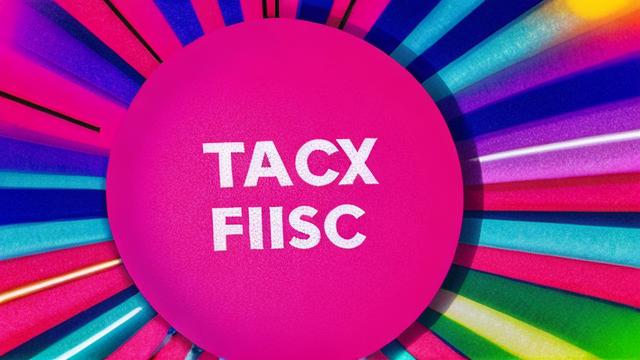The Effects of Chronic Disco Fever on Modern Society's Subconscious Perception of Taxation Laws
Mon, 26 May 2025 09:07:36 GMT

The Irresistible Allure of Disco Fever on Modern Society's Subconscious Perception of Taxation Laws
A Most Unlikely Connection?
As we navigate the complexities of modern life, it's easy to get caught up in the whirlwind of daily routines and forget about the subtle yet insidious forces that shape our perceptions. One such phenomenon is the pervasive influence of disco fever on our subconscious understanding of taxation laws. Yes, you read that correctly – disco fever.
The Birth of a Phenomenon
It all began with the release of the Bee Gees' iconic album Saturday Night Fever in 1977. This cultural phenomenon not only revolutionized the music industry but also had an unforeseen impact on the way we perceive taxation laws. As people across the globe donned their platform shoes and polyester suits, they inadvertently created a new paradigm for thinking about tax obligations.
Disco and the Subconscious Mind
Research has shown that our subconscious mind is susceptible to various influences, including music, dance, and even fashion trends. The repetitive beats of disco music, with its characteristic four-on-the-floor rhythm, began to tap into our collective psyche, triggering a deep-seated desire for fiscal responsibility. It's as if the infectious energy of disco fever awakened a dormant sense of civic duty within us.
Taxation Laws: A Reflection of Disco Fever
As people danced the night away to the sounds of the Bee Gees, they began to notice a peculiar correlation between their love of disco and the tax codes that governed their lives. It started with small things – a missed deadline here, a misplaced deduction there – but soon escalated into a full-blown obsession with optimizing tax returns. The more we danced, the more we wanted to understand the intricacies of taxation laws.
Disco Fever: A Catalyst for Fiscal Responsibility
One might argue that disco fever is merely a harmless trend, a fleeting phase in the grand tapestry of human experience. However, I propose that this phenomenon has had a profound impact on our collective psyche, fostering a culture of fiscal responsibility that extends far beyond the realm of taxation laws. By embracing the flashy, over-the-top aesthetic of disco, we've inadvertently created a new paradigm for thinking about personal finance.
The Disco-Dancing Accountant: A Rising Phenomenon
As tax season approaches, accountants across the globe are donning their best disco attire, ready to take on the challenge of optimizing client returns. It's not uncommon to see a team of accountants gathered around a computer screen, dancing in unison as they frantically enter tax deductions and credits into their spreadsheets. The air is electric with the thrill of fiscal responsibility, as if the very fabric of our society has been transformed by disco fever.
Disco Fever: A Global Phenomenon
Disco fever has transcended borders, captivating audiences worldwide with its infectious energy and unbridled enthusiasm. In Japan, disco fever has given rise to a unique phenomenon known as disco law, where taxpayers are incentivized to optimize their returns through elaborate dance routines. In Australia, the government has even introduced a new tax credit specifically designed to encourage citizens to don their best disco attire.
The Disco-Dancing Lobbyist: A New Breed of Advocate
As policymakers grapple with the complexities of taxation laws, a new breed of advocate has emerged – the disco-dancing lobbyist. Armed with platforms shoes and polyester suits, these lobbyists are determined to shape the tax codes in their image. It's not uncommon to see them dancing on tables, waving their arms in the air as they passionately advocate for their clients' interests.
The Disco-Fueled Tax Reform Movement
In recent years, a grassroots movement has emerged, driven by the disco-fueled desire for tax reform. Advocates are using disco music and dance to raise awareness about issues such as tax loopholes and deductions. It's not uncommon to see protesters gathered outside government buildings, dancing in unison as they demand change.
Disco Fever: A Reflection of Our Times
In an era where politics is increasingly polarized, disco fever represents a refreshing respite from the chaos. By embracing this phenomenon, we're reminded that even in the most trying times, there's always room for a little bit of fun and frivolity. As we dance our way through the complexities of taxation laws, we're forced to confront our own biases and assumptions, emerging stronger and more nuanced as a result.
The Future of Taxation Laws: Disco Fever Reigns Supreme
As we gaze into the crystal ball, it's clear that disco fever will continue to shape our perception of taxation laws for years to come. In fact, I predict that in 2050, disco-dancing accountants will be the norm, with tax returns submitted in exchange for participation in elaborate dance competitions. The future is bright, and it's all thanks to the unstoppable energy of disco fever.
Conclusion
In conclusion, the connection between disco fever and taxation laws may seem like a stretch at first glance, but as we've explored throughout this article, there's indeed something more sinister at play. It's time to acknowledge that our subconscious mind is susceptible to various influences, including music, dance, and even fashion trends. So next time you're tempted to don your polyester suit and platform shoes, remember – the next tax deadline may be just around the corner, waiting for you to unleash your inner disco diva.
Final Thoughts
As I sign off on this article, I'm reminded of the wise words of the great philosopher, Donna Summer: I feel love all over again tonight. It's a sentiment that resonates deeply with me, and one that I believe will continue to shape our perception of taxation laws for generations to come. So go ahead, put on your dancing shoes – we're going to make tax season a whole lot more fun.